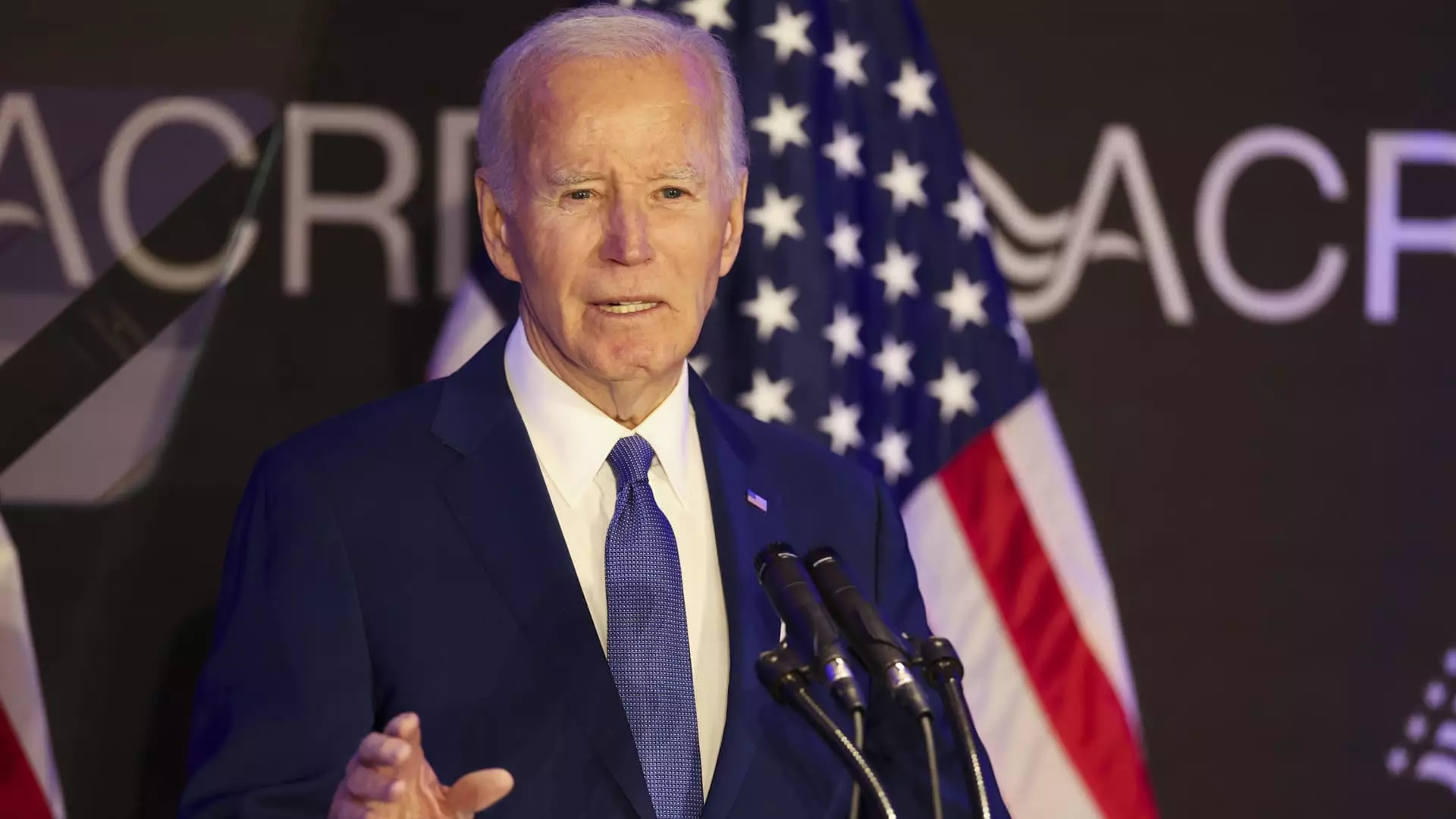In a world where political strength is often measured by decisiveness and resilience, President Joe Biden’s recent diagnosis of prostate cancer injects an unsettling reality into the lives of many Americans. Word spread like wildfire that the 82-year-old leader was coping with not just any cancer, but a particularly aggressive form with a Gleason score of 9. This score signifies an alarming aggressiveness, and the revelation that the cancer has metastasized to Biden’s bone heightens the stakes. For anyone who has witnessed or experiences the ravages of this disease, this diagnosis is more than a headline; it becomes a deeply personal story of struggle and survival.
At this juncture, it is critical to dissect how this health setback intersects with the fabric of Biden’s political narrative and the collective consciousness of the nation. As political leaders extend their well-wishes, one cannot help but wonder whether this moment will reshape the perception of leadership in America.
Bone-Deep Implications of Health in Politics
Biden’s situation resonates beyond the medical implications; it raises urgent questions about physical competency as it relates to political office. A 9 on the Gleason scale suggests a fast-moving adversary—one that challenges not just Biden’s ability to govern but the very notion of what it means to be a leader at an advanced age. In a society where youth is often equated with vitality, can a leader who is facing such profound health challenges maintain the stamina required to navigate the complexities of modern governance? The forthcoming treatment decisions will undoubtedly carry weight—both for Biden’s personal effectiveness and the public’s faith in his ability to lead.
Moreover, let us not ignore the larger narrative surrounding aging politicians. After a disaster-class debate performance in June, there were whispers, then shouts, of concern—critics suggesting that Biden’s age was no longer an abstraction but an impediment to progress. Now, amid this health crisis, the public’s scrutiny intensifies. The reality is that a cancer diagnosis can also present an opportunity to reshape political discourse on age and capability. Soldiering on in the face of personal strife might just galvanize more support, altering how we assess not just Biden but the age-old question of whether experience outweighs the perceived limitations of age.
A Legacy of Resilience
Biden’s life has been punctuated with personal and professional challenges, yet he has navigated these tumultuous waters with notable grit. His earlier efforts to champion “moonshot” initiatives aimed at combating cancer reflect a legacy intertwined with personal loss. The death of his son Beau to brain cancer profoundly shaped Biden’s worldview, igniting a passionate commitment to fight against this merciless disease. As he now faces his own battle, one can sense the echoes of his past hardships informing his resolve.
It is compelling to witness how political rivals like Donald Trump express sympathy. The well-wishing from opposing party members illustrates a rare moment of human connection transcending political divides. Are we witnessing the beginning of a more compassionate political arena, or is this merely a snapshot of transient goodwill? The question remains open-ended, for as history shows, personal health and political strategy frequently intertwine in mysterious, often unpredictable ways.
Faith, Humanity, and the Cancer Combat
In an era where political discourse often prioritizes ruthless critique over empathy, Biden’s health should serve as a catalyst for a renewed focus on the human experience. Kamala Harris described him aptly as a “fighter.” Does this galvanizing spirit not beckon our collective understanding of struggle? Those battling chronic illnesses deserve not only sympathy but respect and acknowledgment of their courage.
Indeed, Biden’s cancer journey compels us to re-evaluate how society’s acknowledgement of public figures’ vulnerabilities can bridge divides. Rather than isolating these political figures in a realm of invulnerability, we may be reminded that everyone, regardless of position, wrestles with mortality and health. Therefore, the conversation must evolve beyond mere elections and governance; it should advance toward recognizing our shared humanity.
As the administration wrestles with these challenges, the outcomes remain uncertain. What is assured, however, is that this moment will reverberate throughout the dialogues on health, parenthood, and resilience, prompting deeper conversations on what leadership truly entails in an ever-complicated world. Let us hope that in Biden’s fight, there emerges a powerful narrative—a tale of determination and solidarity in the face of adversity that transcends political ideologies.


Leave a Reply